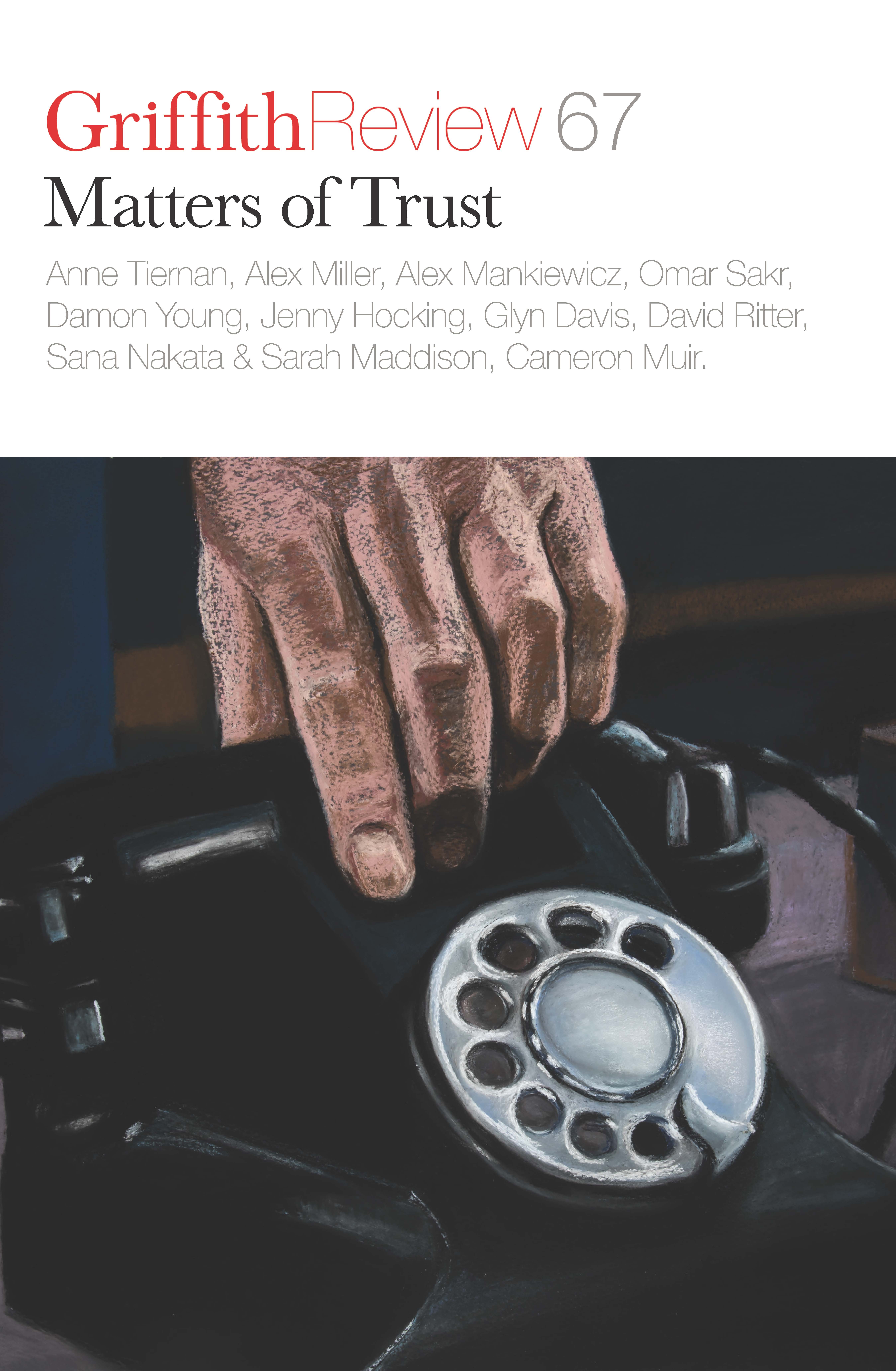Featured in

Buy
$27.99
- Published 20200204
- ISBN: 9781925773804
- Extent: 264pp
- Paperback (234 x 153mm), eBook

Already a subscriber? Sign in here
If you are an educator or student wishing to access content for study purposes please contact us at griffithreview@griffith.edu.au
Share article
More from author

The engine of Christmas
GR OnlineThen the Grinch thought of something he hadn’t before! Maybe Christmas, he thought, doesn’t come from a store. Dr Seuss, How the Grinch Stole Christmas! MAT...
More from this edition

The compound
FictionA TROPICAL SUMMER. 2006: A Monday. Wendy, the story: the compound, the day, her telling me in Mackay her dream of going to England...

Working through the problems
In ConversationWE WORK TOGETHER as co-directors of the Indigenous Settler Relations Collaboration, a research unit at the University of Melbourne. In this context, our working...

Ministry of Truth 20/20
Stay up to date with the latest, news, articles and special offers from Griffith Review.